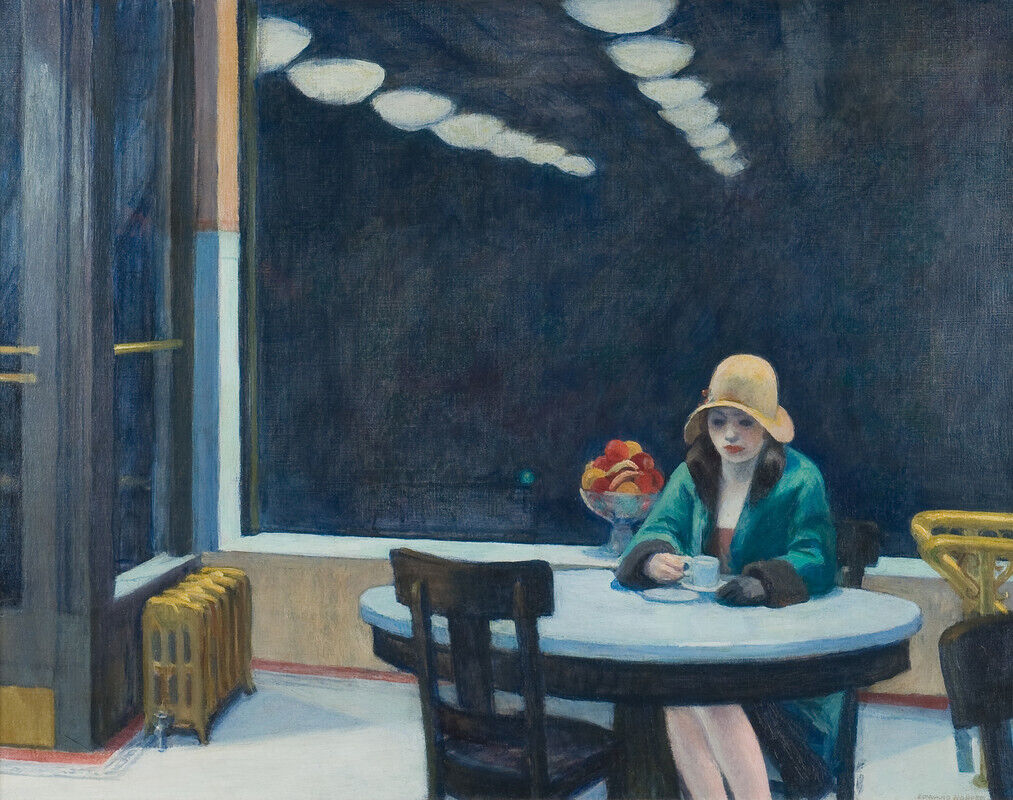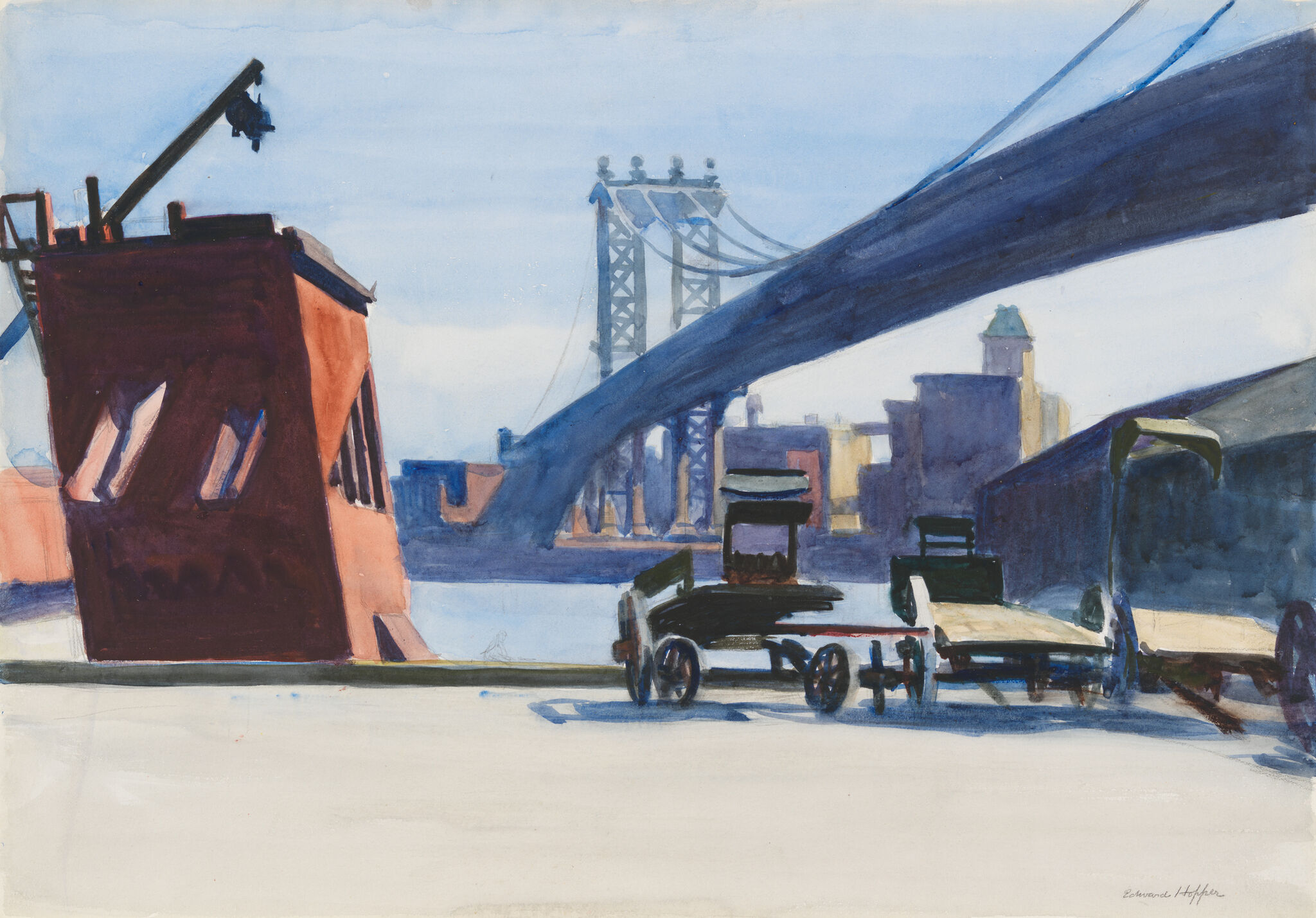Saturated Places: Edward Hopper’s New York
Wed, Oct 5, 2022
12 pm
This event has passed.
See more events like this.
Become a member today!
Join now to enjoy early access to exhibitions and events, unlimited free admission, guest privileges, and more.
Join nowThis event will have live closed captioning. If you need captions in a separate browser window, please email accessfeedback@whitney.org for StreamText link.
Learn more about access services and programs.
Online, via Zoom
All members
Option 1: Wednesday, October 5, 12 pm
Option 2: Tuesday, October 11, 6 pm
Option 3: Thursday, November 3, 6 pm
Edward Hopper’s many paintings of New York City invite us into an intense act of observation. Hopper often composed his city scenes by editing and piecing together various urban spots, and then painting them so generously that we feel welcomed to observe every bit, inch by inch. In such a way, Hopper painted New York City as a place saturated with meaning. It is as if he places us before our very own New York apartment window, or café perch, from which we are meant to linger, scrutinize, and fathom the place before us. A mere radiator, even air, empty space, or the concrete curb, can compel deep thoughts.
This program with Joan Tisch Teaching Fellow Jason Vartikar explores Hopper’s super-saturated paintings of the “concrete jungle,” on view in the ambitious exhibition Edward Hopper’s New York at the Whitney. We will revisit and inventory the historic New York corners Hopper frequented, lived near, fought to preserve, and painted; and thereby go on a journey to enliven the saturated place he knew, and wanted us to know.
Jason Vartikar is a Joan Tisch Teaching Fellow at the Whitney. He is also a Ph.D. candidate in the department of art and art history at Stanford, where he has been a Jones Fellow since 2016. He is currently writing his dissertation on melancholy registered in American art produced between 1915–45, focusing on the paintings of Charles Burchfield. His writing on Ruth Asawa’s wire sculpture appeared in American Art, the journal of the Smithsonian, which awarded the essay Frost Prize honorable mention in 2021.


